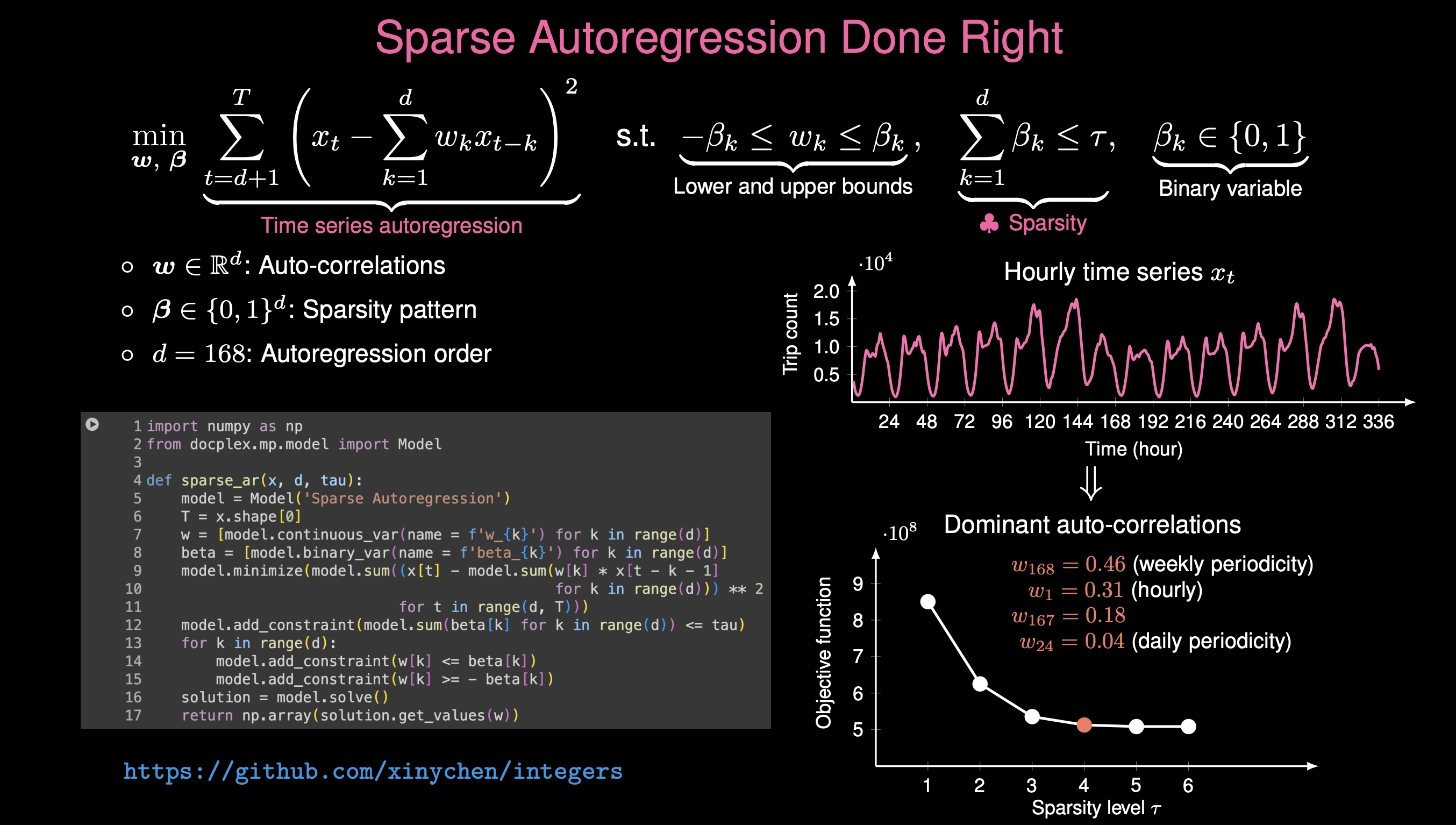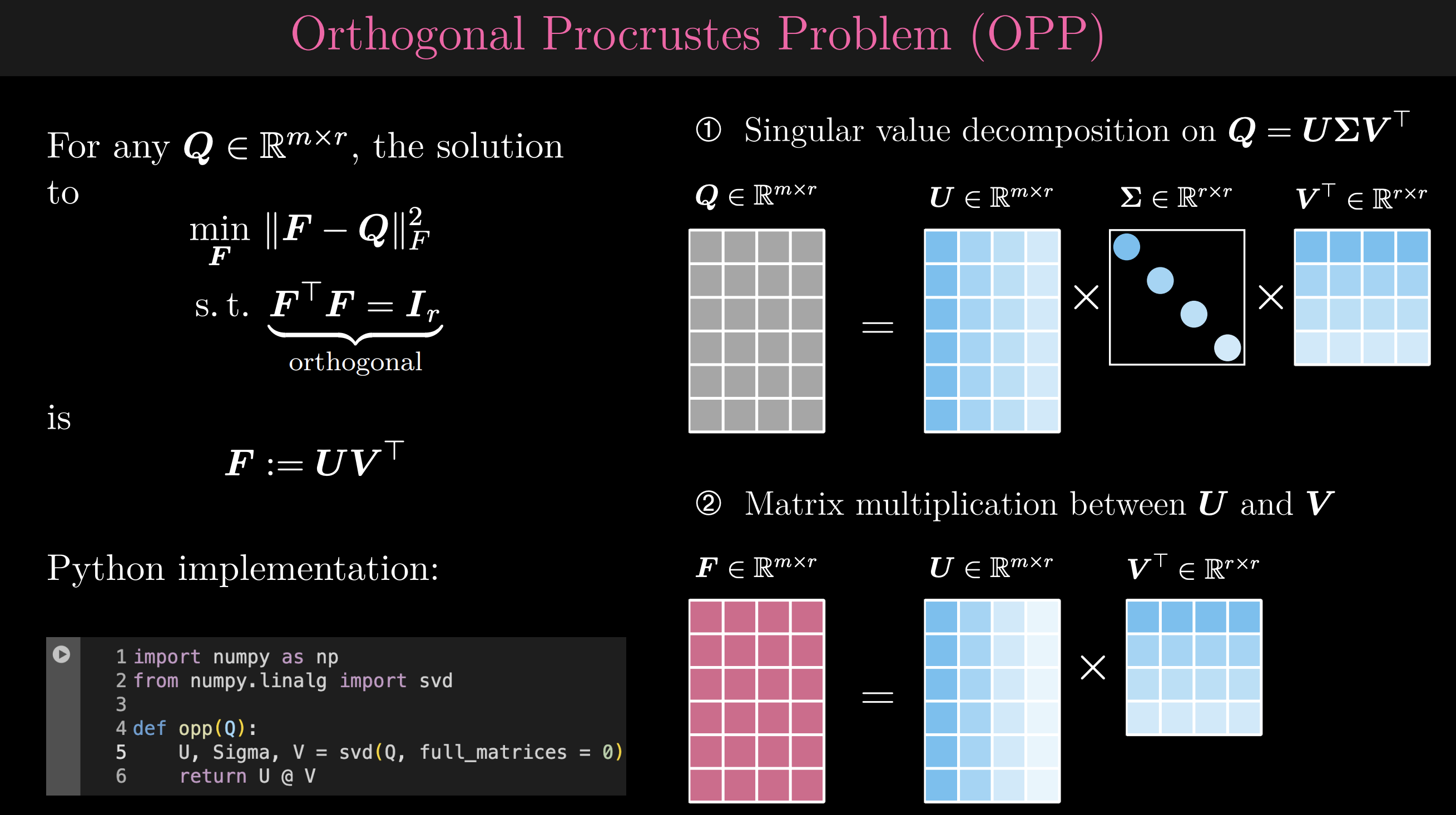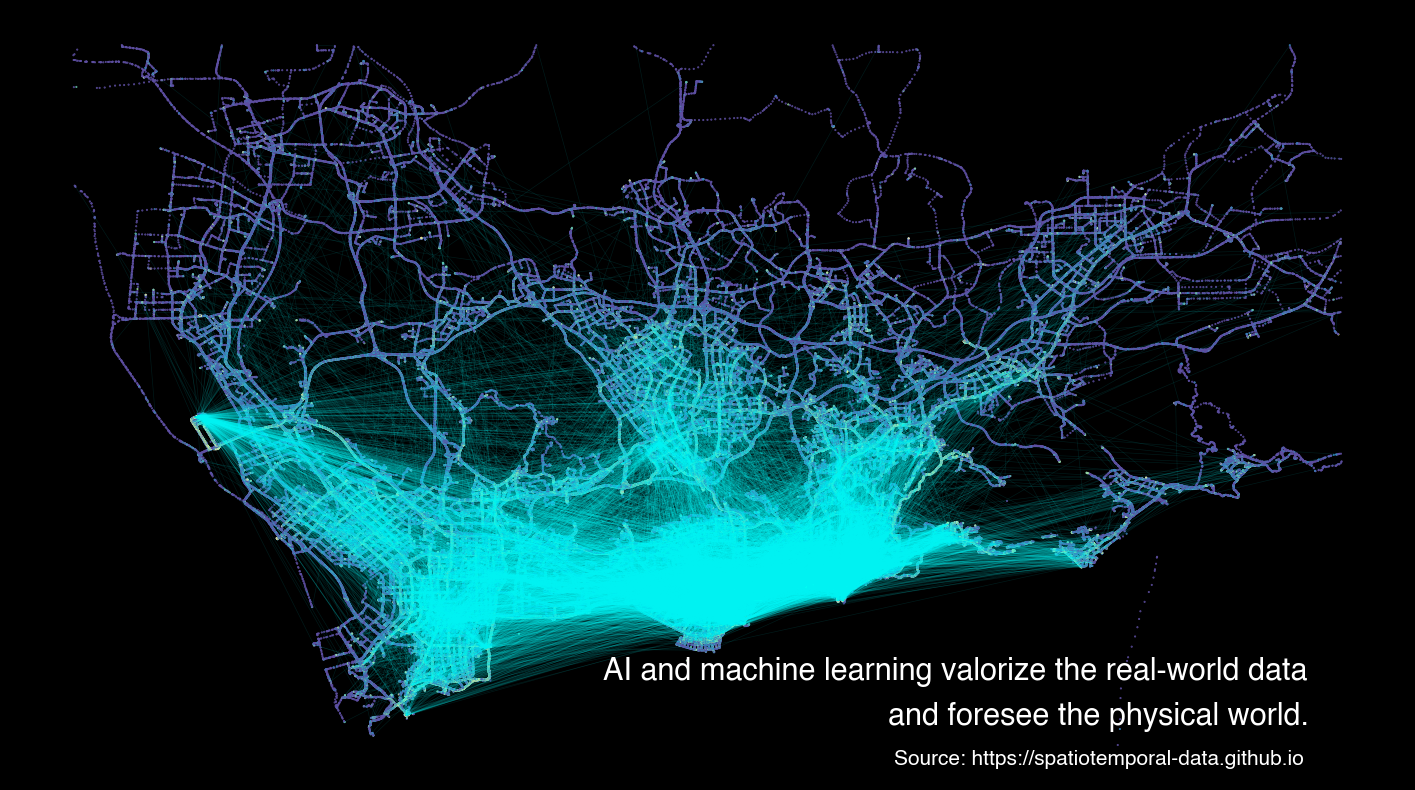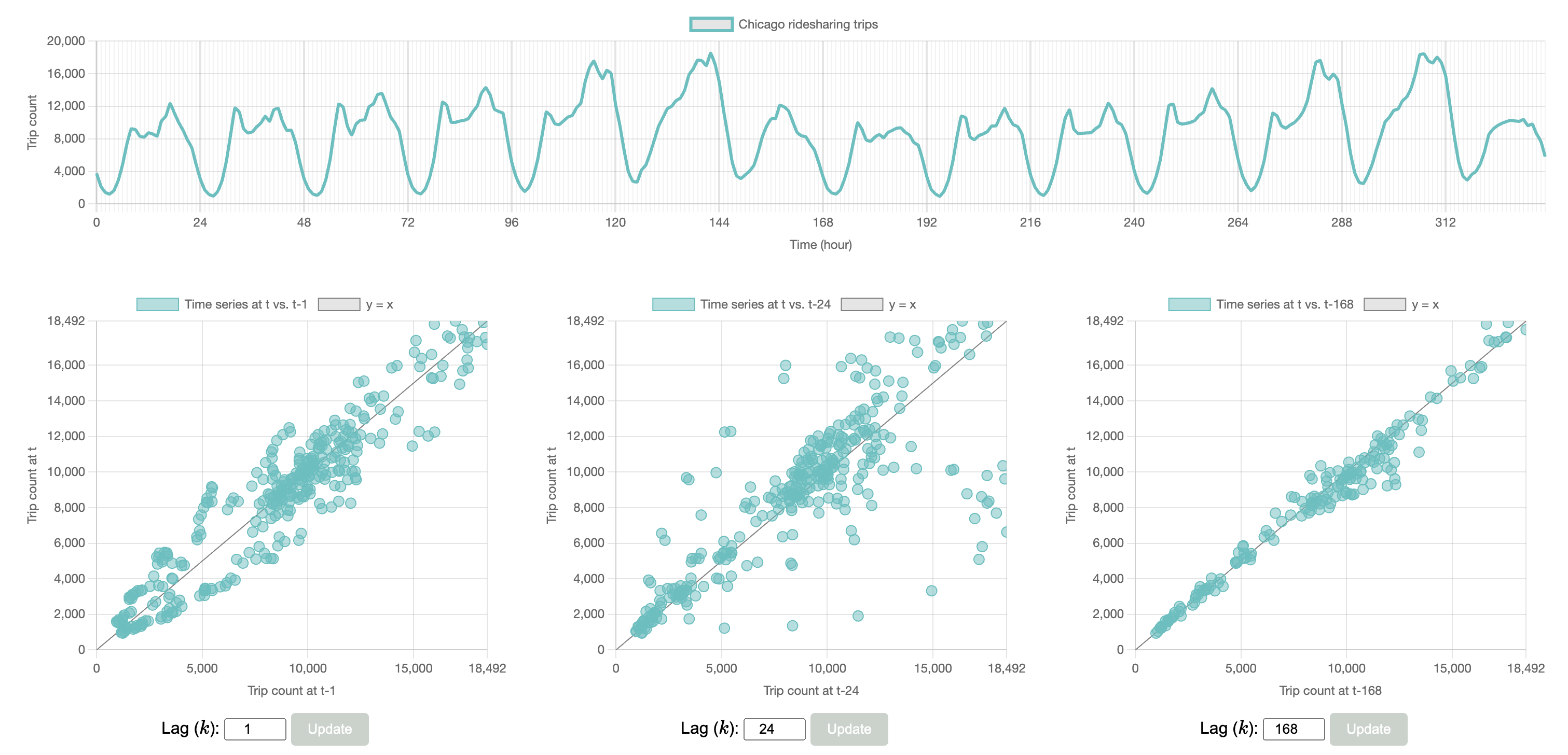This project aims at supporting interdisciplinary research for diverse aspects of spatiotemporal data computing with machine learning and addressing many scientific, mathematical, industrial, and engineering problems in:
- Human mobility modeling
- Intelligent & sustainable urban systems
- Optimization & decision making
- Data standardization & valorization & monetization
- Signal processing
- Dynamical systems & control
- Computational engineering & social science
Machine Learning Explained Series
In the past decade, the development of artificial intelligence and machine learning has been truly remarkable. There are several easy-to-follow posts that are created to explain the essential ideas of this project and inspire innovations:
A convolutional kernel approach for reinforcing the modeling of time series trends and interpreting temporal patterns, allowing one to leverage Fourier transforms and learn sparse representations. The interpretable machine learning models such as sparse regression unlock opportunities to better capture the long-term changes and temporal patterns of real-world time series. The content is mainly from our research work below.
- Xinyu Chen, Zhanhong Cheng, HanQin Cai, Nicolas Saunier, Lijun Sun (2024). Laplacian convolutional representation for traffic time series imputation. IEEE Transactions on Knowledge and Data Engineering. 36 (11): 6490-6502.
- Xinyu Chen, Xi-Le Zhao, Chun Cheng (2024). Forecasting urban traffic states with sparse data using Hankel temporal matrix factorization. INFORMS Journal on Computing. Early access.
- Xinyu Chen, HanQin Cai, Fuqiang Liu, Jinhua Zhao (2025). Correlating time series with interpretable convolutional kernels. IEEE Transactions on Knowledge and Data Engineering. 37 (6): 3272-3283.
🔨 Annotating the weekly periodicity of hourly ridesharing trip time series in Chicago since April 1, 2024.
Interpretable time series autoregression for periodicity quantification (ints ⮕ integers).
The content is mainly from our research work below.
- Xinyu Chen, Vassilis Digalakis Jr, Lijun Ding, Dingyi Zhuang, Jinhua Zhao (2025). Interpretable time series autoregression for periodicity quantification. arXiv preprint arXiv:2506.22895.
- Xinyu Chen, Qi Wang, Yunhan Zheng, Nina Cao, HanQin Cai, Jinhua Zhao(2025). Data-driven discovery of mobility periodicity for understanding urban transportation systems. arXiv preprint arXiv:2508.03747.

🔨 Identification of the dominant auto-correlations from time series through sparse autoregression. The sparsity constraint allows one to find the dominant auto-correlated time lags (e.g., $k=1,24,167,168$).
Time-Varying Autoregression 🌱🌱
Time-varying autoregression for discovering spatial and temporal patterns of dynamical systems. The system equation includes both time-varying autoregression on the data space and tensor decomposition on the latent space. The content is mainly from our research work below.
- Xinyu Chen, Chengyuan Zhang, Xiaoxu Chen, Nicolas Saunier, Lijun Sun (2024). Discovering dynamic patterns from spatiotemporal data with time-varying low-rank autoregression. IEEE Transactions on Knowledge and Data Engineering. 36 (2): 504-517.
- Xinyu Chen, Dingyi Zhuang, HanQin Cai, Shenhao Wang, Jinhua Zhao (2025). Dynamic autoregressive tensor factorization for pattern discovery of spatiotemporal systems. IEEE Transactions on Pattern Analysis and Machine Intelligence. Early access.

🔨 Explaining a simple solution to the optimization of Orthogonal Procrustes Problem (OPP).
Research Visualization
🌱 Awesome LaTeX Drawing. Drawing and generating academic graphics in LaTeX for visualization purposes in research.
Interactive Visualization Tool for Analyzing Time Series Periodicity
🔨 Anotating the time series periodicity of hourly ridesharing trip time series in Chicago since April 1, 2024.
Scientific Data Tutorial Series
To advance the development of spatiotemporal data computing in the research community, this project handles various spatiotemporal data:
- Analyzing millions of taxi trips in the City of Chicago
- Constructing human mobility tensor on NYC rideshare trip data
To contribute to the open science, this project provides a series of tutorials for beginners to understand machine learning and data science, including
-
Tensor decomposition for machine learning (see the detailed page at MIT Sites).
-
Spatiotemporal data visualization in Python.
📂 For those who are interested in broad areas within the scope, we would like to recommend a series of well-documented reading notes.



